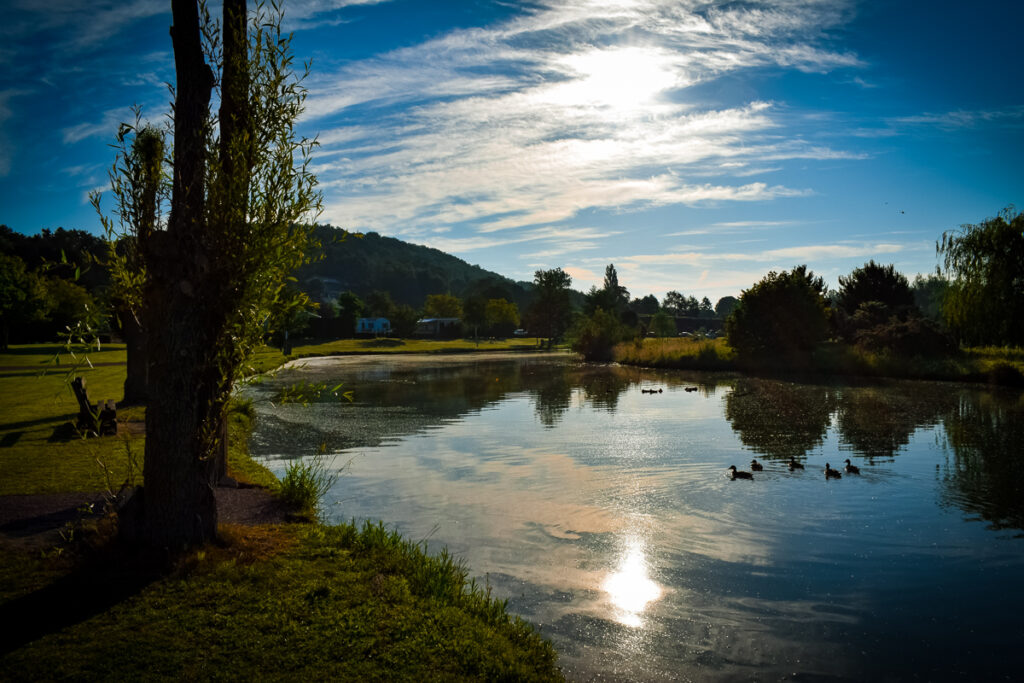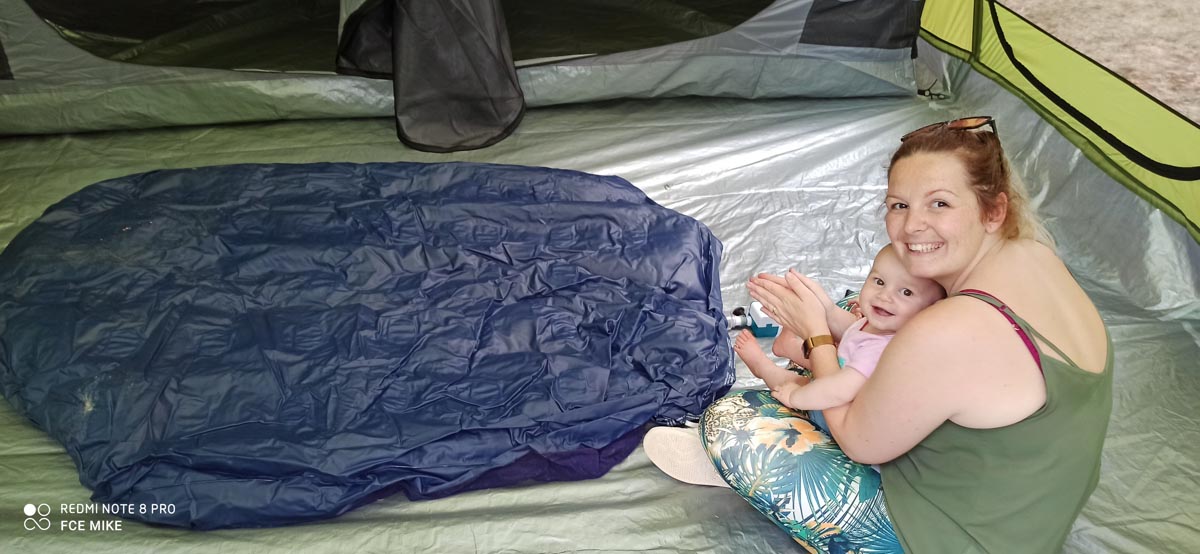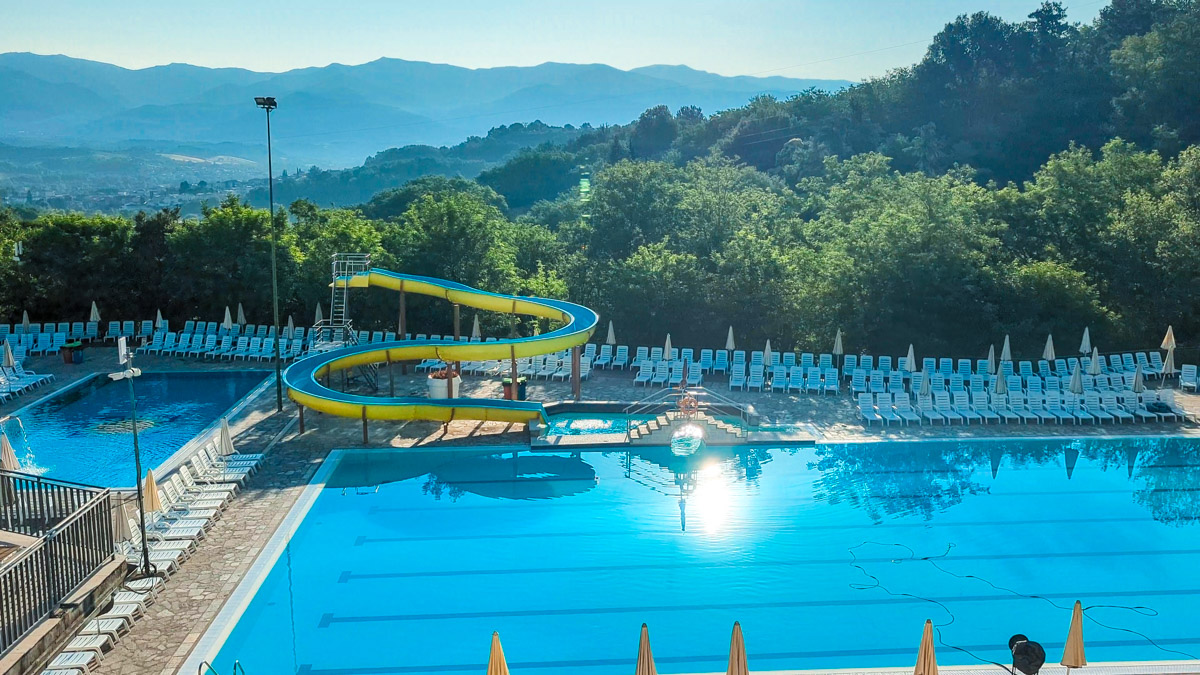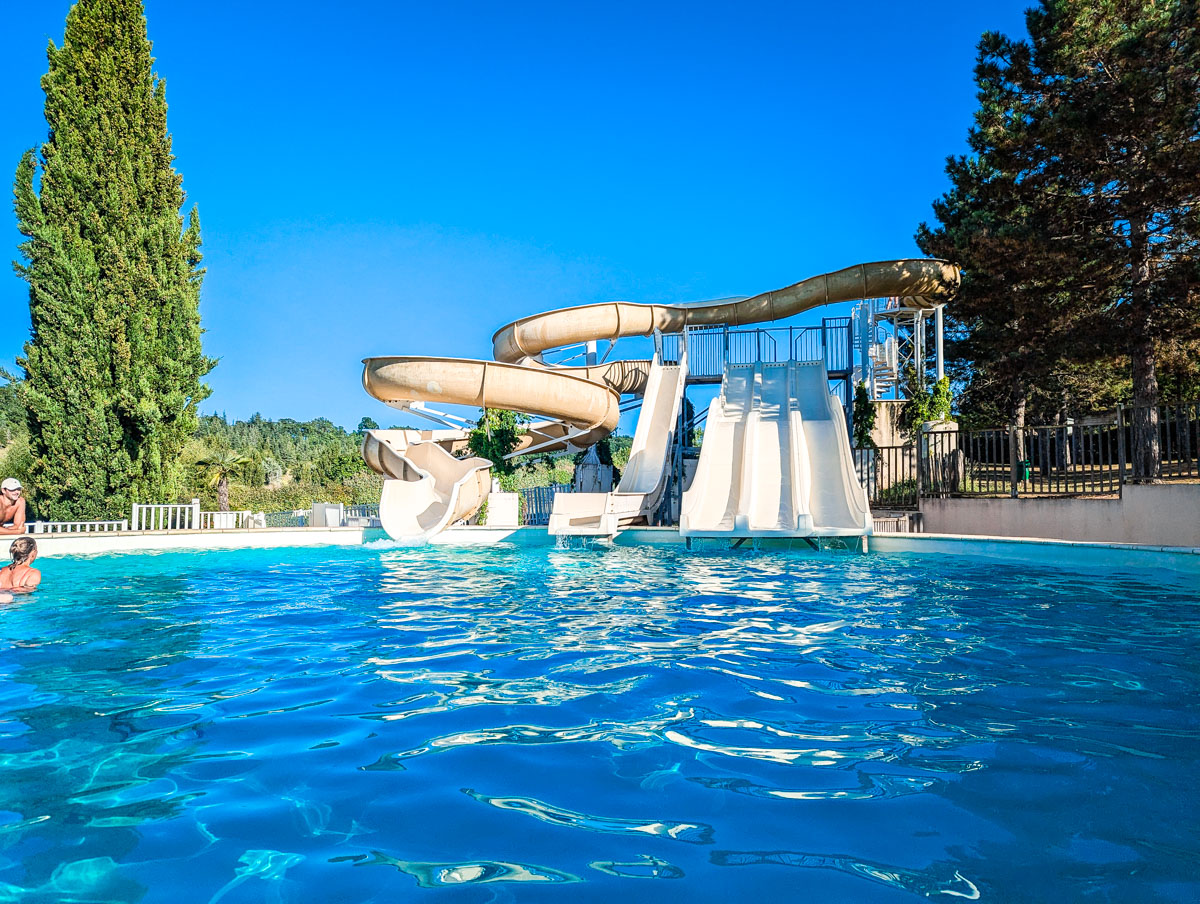How do you plan the best camping trip for your family when you’ve never done it before?
Family camping in Europe is supposed to be a fun, enjoyable experience. However, with lack of planning and preparation? It could end up chaos – especially when you have young children like us.
This guide is for all the families, no matter the composition, who want to try Family Camping for the first time. Everyone’s camping style is different, you may want a quiet weekend in nature or you may want a 3 week trip to a luxury 5* campground. Whatever your tastes, this guide is for you.
Whoever you are, grab a cup of something, a pen and some paper and let’s get planning; it’ll only take you a few minutes but will make your trip away camping, so much better.
Why Do I Need To Plan My Camping Trip?
Can’t we just turn up and wing it?
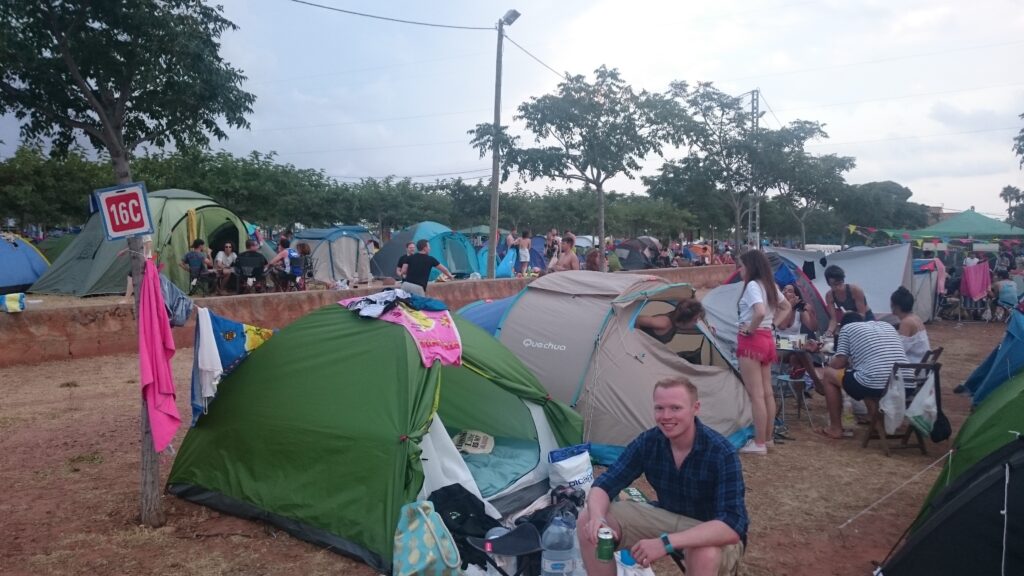
I am a planner. Every family needs one. My family has me. I find that planning is essential, especially when it comes to camping holidays. Planning the best camping trip with family (and sometimes friends) isn’t easy and can seem like an overwhelming task. But, I find it really makes a massive difference to the holiday.
Taking the time to write your packing lists, site seeing lists, planning your locations, etc. can be the difference between; Sitting miserably in the rain with nothing to do or living your best life exploring all that somewhere has to offer.
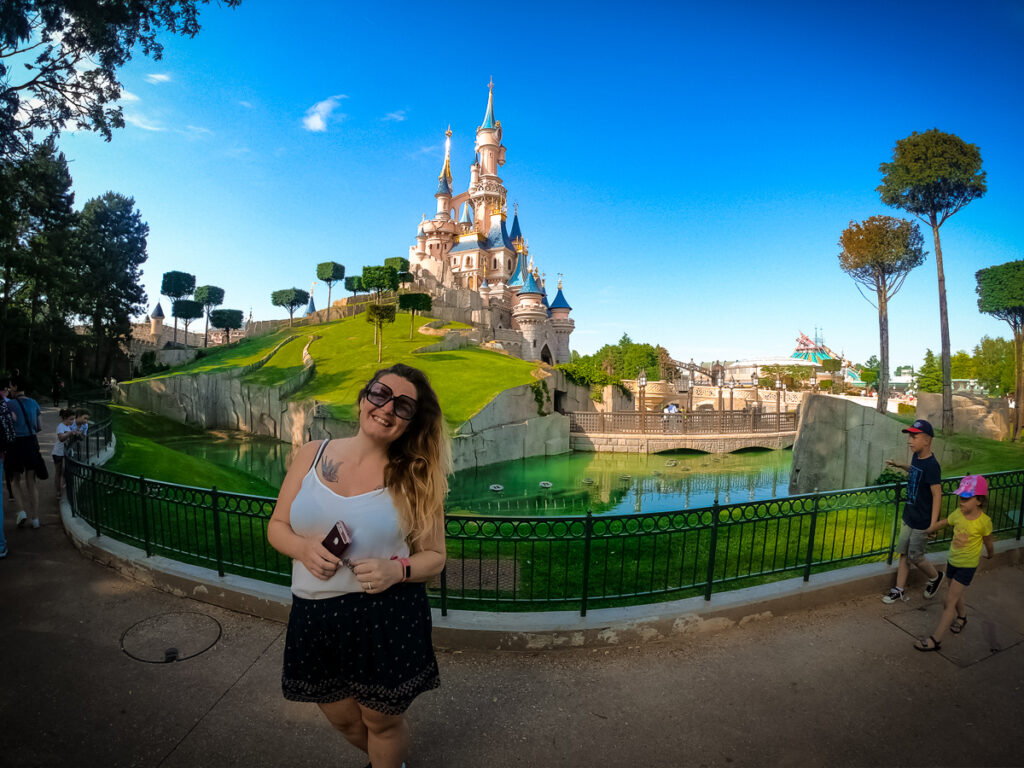
For example, 2 years ago, my family and I took a trip to Disneyland while we were camping at La Croix du Vieux Pont. An expensive day out, as you can imagine.
I was 6 months pregnant, my nan was in a wheelchair, and my nephews were young toddlers…Whilst it was a lovely day, because none of us had planned ahead, we all ended up going on just one ride, eating an expensive meal in one of the extortionately priced restaurants and walking around aimlessly all day.
Yet, had we planned ahead, there was plenty each member of the family could see, do and ride on – if only we had a structured itinerary planned in advance. Since that holiday, I’ve realised the importance of planning ahead, so I wanted to share my knowledge and planning systems with you.
First Things First…
Step 1: Decide Who Are You Camping With?
First, you want to take into account who you are camping with. Not all families are on the same page when it comes to camping. Some people see camping as roughing it in a tiny tent at the peak of a mountain. In contrast, others see it as staying in a chalet somewhere with a fancy pool and more facilities than you’ll ever use.
Personally, I enjoy somewhere in the middle as I’m sure most of you do too. You really need to clarify what camping is to you and make sure that you and your family are all on the same page. Compromise where necessary.
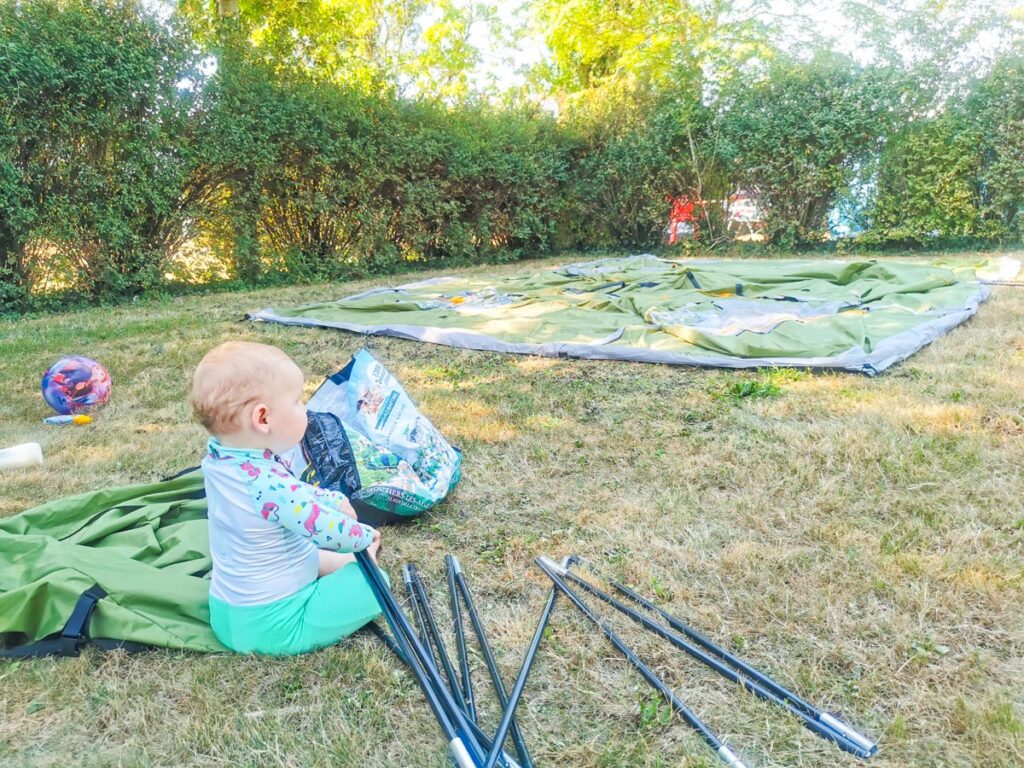
If you’re camping with young children, you probably want to avoid camping in dangerous places. Still, you may also want to avoid loud resort-style campsites. If you’re camping with wheelchair users, you’re going to want to look at the accessibility of a campsite.
There’s a lot to think about so really get clear on the demands of each family member.
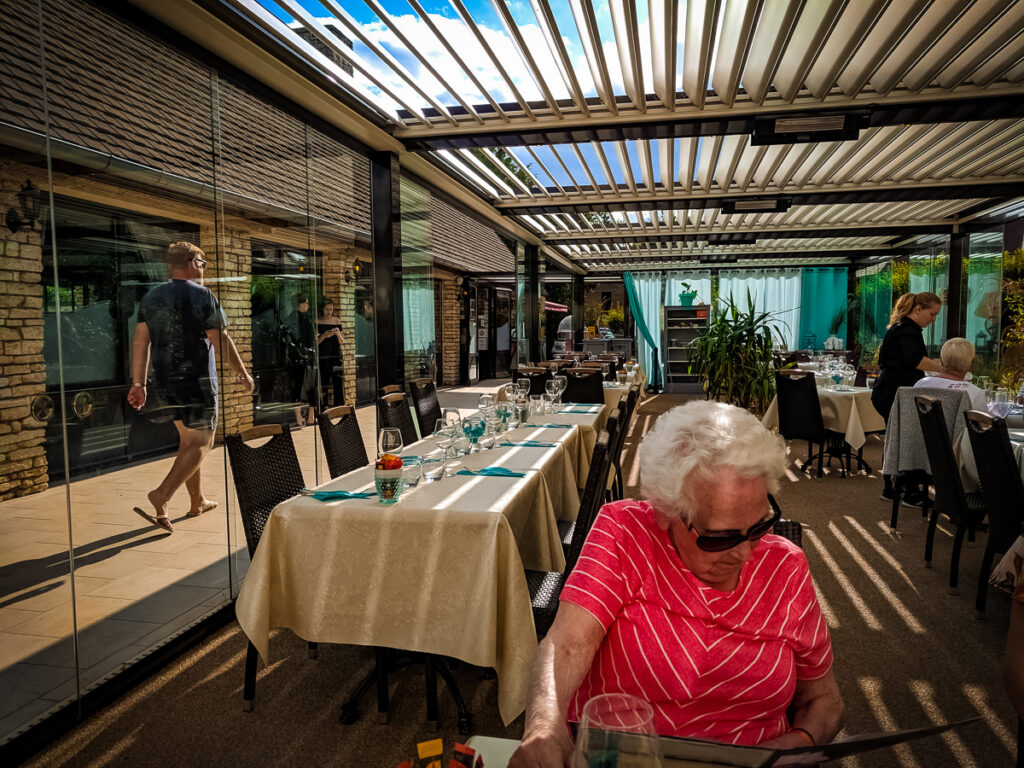
Step 2: Choose your campsite – Where are you going?
Now you’ve figured out who you’re camping with and what their needs are, you can start thinking about where to go.
How far do you plan to go? Remember the further away from home you go the further you have to come back. What I mean is; if it’s your first time camping, you probably want to stick closer to home, at least for now.
You see, camping isn’t always smooth sailing. We’ve had tent poles snap on us, power cuts, floods, storms, everything. It’s not always great to persevere through it, and sometimes it’s best to give up and try again another time – hence my advice for first-timers: “give it a go close to home”.
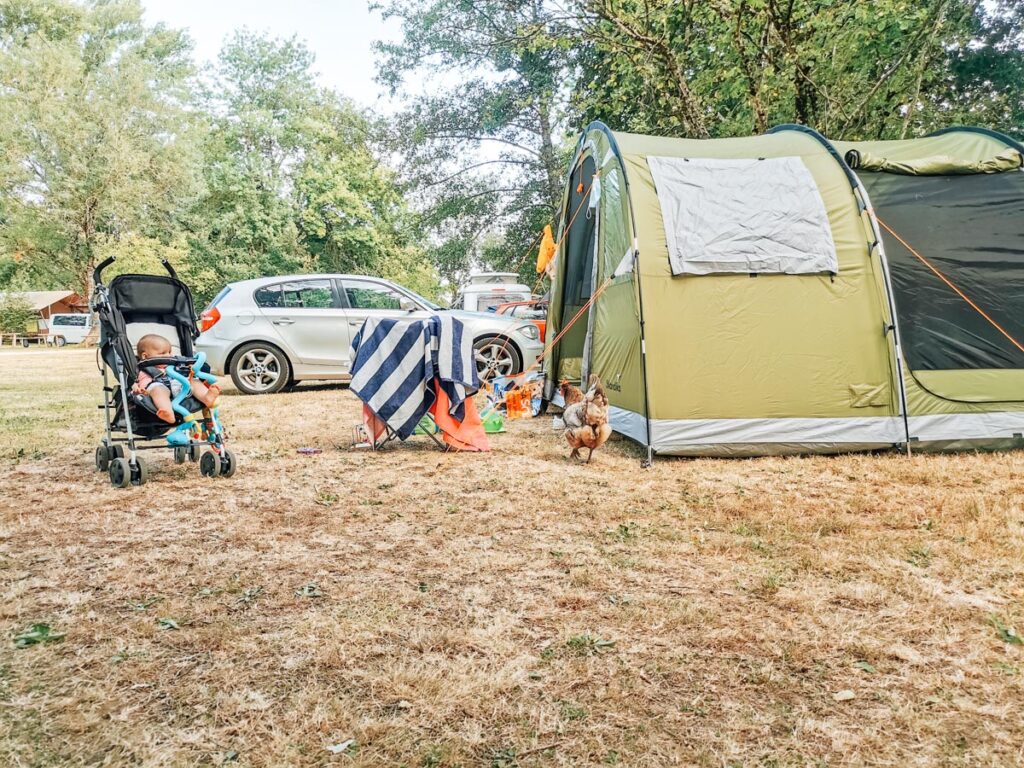
Another location thing to consider is fuel and road toll budgeting. You may have budgeted for your camping pitch, activities, food, etc. but don’t forget to budget for your fuel and tolls. And whilst we’re on the subject of cars, if you’re taking it on a long journey make sure it’s large enough to fit your tent, gear, luggage and family in as well as good enough condition to make the journey.
The last thing you want is a car packed to rafters broken down at the side of the motorway and screaming kids that can’t move because they’re rammed in next to sleeping bags.
Step 3: Check The Weather Reports
One of the main things I like to consider is the weather. I think camping is all about living in and exploring the outdoors. If you’re planning to camp in the middle of a storm, you’re really not going to get that experience. It’ll be hard to put up a tent, you won’t be able to explore well, and you certainly won’t be able to eat outside.
We book 90% of our camping holidays last minute mainly for this reason. I think finding the right weather is crucial. Too hot and your tent/camper/static will become a sauna and too cold it’ll become a freezer. Whilst it is possible to camp in these extremes, it really doesn’t make for the most pleasant holiday. You won’t be getting the most enjoyable experience from your trip as you could.
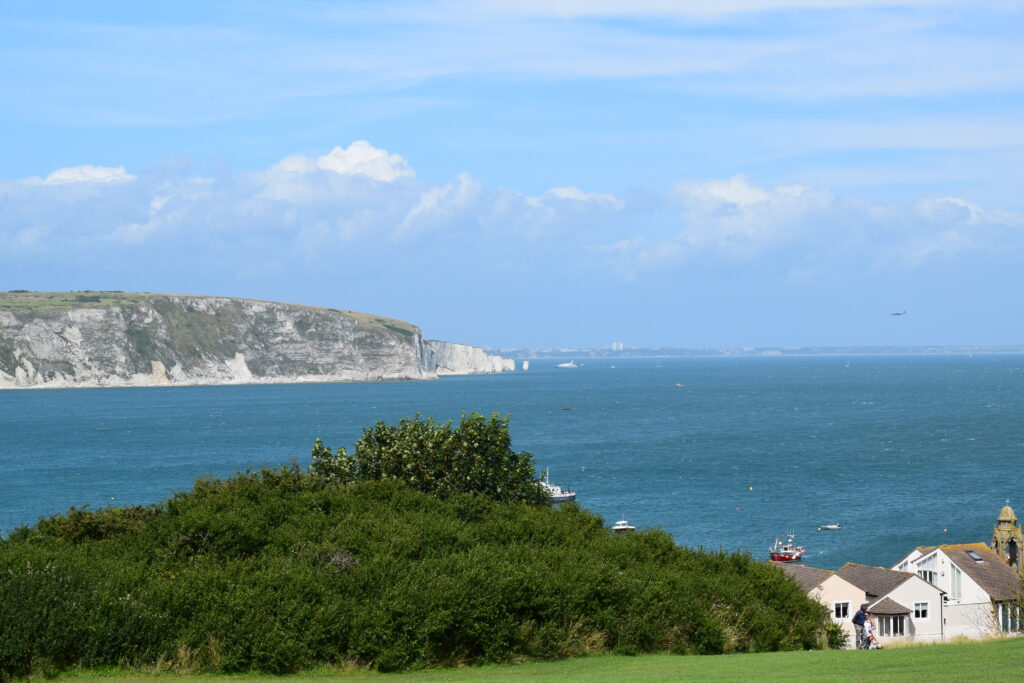
Last year we tent camped on some of the hottest days of the year, in fact, it was over 40degreesC on one of the days we were putting the tent up, and with a baby, it really wasn’t ideal. In contrast, we camped on some wet and miserable days too, and even though it wasn’t as sweaty, it still wasn’t as nice as the moderate sunny days.
Step 4: Check what equipment you have
Planning your best camping trip will rely heavily on what equipment you have. Do you have a tent, a camper, are you staying in a static? How about beds? Do you have a blow-up air bed, a sleeping mat or were you thinking of sleeping on the floor (believe me, I wouldn’t advise that).
Our tent kit is fairly basic, yet it still manages to fill the car every time. We take our Skandika Tent, Blow up camp beds from decathlon (which I 100% recommend), our self-inflating mattress, some battery-powered lights and a tent tidy.
We’ve yet to buy anything for an electric hookup. At most campsites we have stayed it we’ve either made do without or hired a fridge with an extension from the site itself.
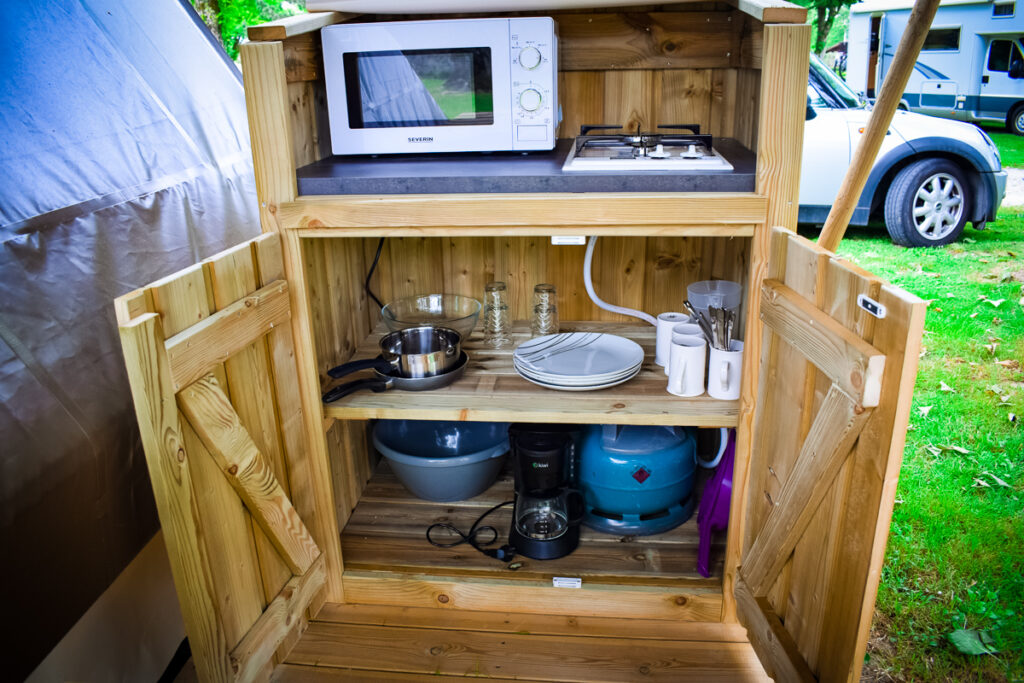
Consider if EHU (electric hook up) is something your family will require or if you can make do without. This will also give you a wider variety of possible campsites to stay at.
Without an EHU, I find using power packs to charge phones helpful and turning them off when not in use.
After the camping season ended last year, we managed to pick up a portable gas hob from the LIDL sales and nabbed an Outwell wardrobe bargain at the charity shop.
It’s really worth looking around your local charity shops and buying in the off-peak season if you’re looking for good deals on your camping equipment.
But back to my point, what equipment you have will play a part on your camping trip. You don’t have to kit your tent/mobile home/campervan out with all the latest gadgets, but definitely, make it comfortable enough for those rainy days stuck inside.
Step 5: Create your packing list
I have a standard packing list that I go off of every trip written in my notebook. Yet, I also write another one every time just to ensure I don’t forget anything. I usually start writing it about a week in advance and base it on my daily/weekly routines to not forget anything.
Write down what you use in a day: face creams, toothbrush, toothpaste, kettle, etc. Everyday things and then decide what’s a necessity to take with you and what isn’t. Then you have to think about the “I don’t use it every day but what if I need…”
It doesn’t matter if we’re going for a week or a weekend our packing list is generally the same and our car is full.
There are so many things that are easy to forget, so I advise starting your list as early as possible. Below I have added a photo of our list to give you an idea of what we pack.
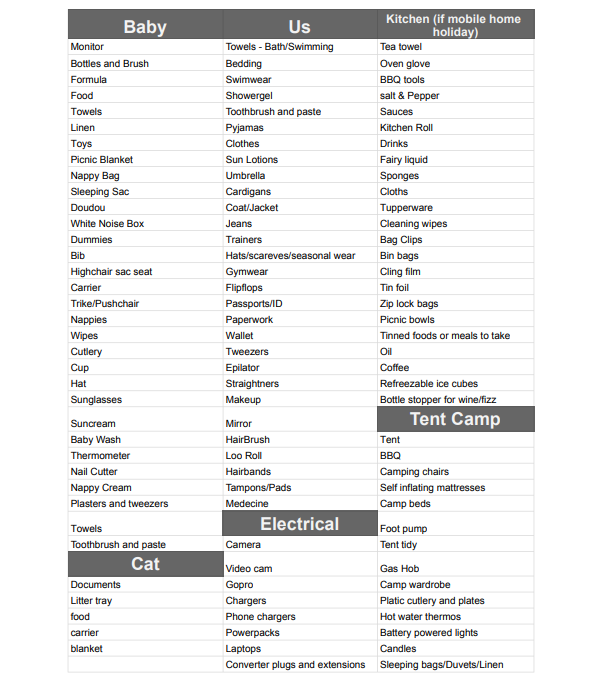
Step 6: Plan your meals and how you’re going to cook them
Cooking and eating isn’t always easy and depends entirely on your equipment. We find that if we are staying in a new place, we tend to eat out at least once as it takes the pressure off. However, that doesn’t mean you have to.
Many campsites allow for bbq’s so we have a cheap £10 one that we can cook some basic food on and we usually pack a lot of long life “easy” foods like cereal bars, granola, etc.
If the options are available, we like to rent a fridge to eat fresh salads daily. Still, if fridges aren’t available, then a daily shop trip is usually a feasible solution.
If you have a gas hob, you can heat water for soups and dehydrated foods, and you can even cook your own one-pot meals too. A gas hob really does make a difference to the number of meals you can cook so I would advise investing in one.
Make a list of easy/convenient recipes you and your family like and will be able to make and pack anything that’ll make your life easier, such as cooking utensils and tinned foods.
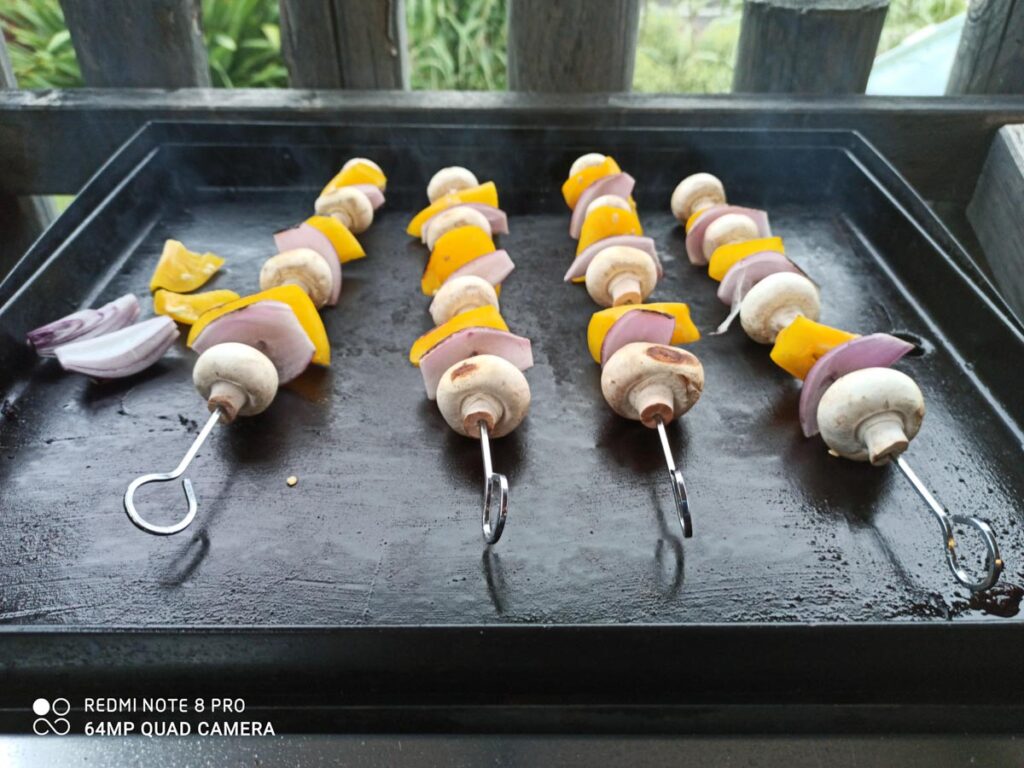
Step 7: Plan your activities on site
Depending on the style of camping you have opted for you may have plenty of on-site activities. However, you’ll want to check (especially if camping in low season) that these are open. The last thing you want is to turn up to a campsite with an amazing pool area that your kids are really looking forward to, only to discover it doesn’t open for another 2 weeks.
Once you have a rough idea where you want to go, see what’s there and plan what you want to do. I’d also make this plan coincide with the predicted weather – but flexible enough if the weatherman is wrong.
Playing board games, family time, reading books, and marshmallows over the fire (please check that fires are allowed before you do this) are amazing family bonding camping activities and really help make the experience a positive one.
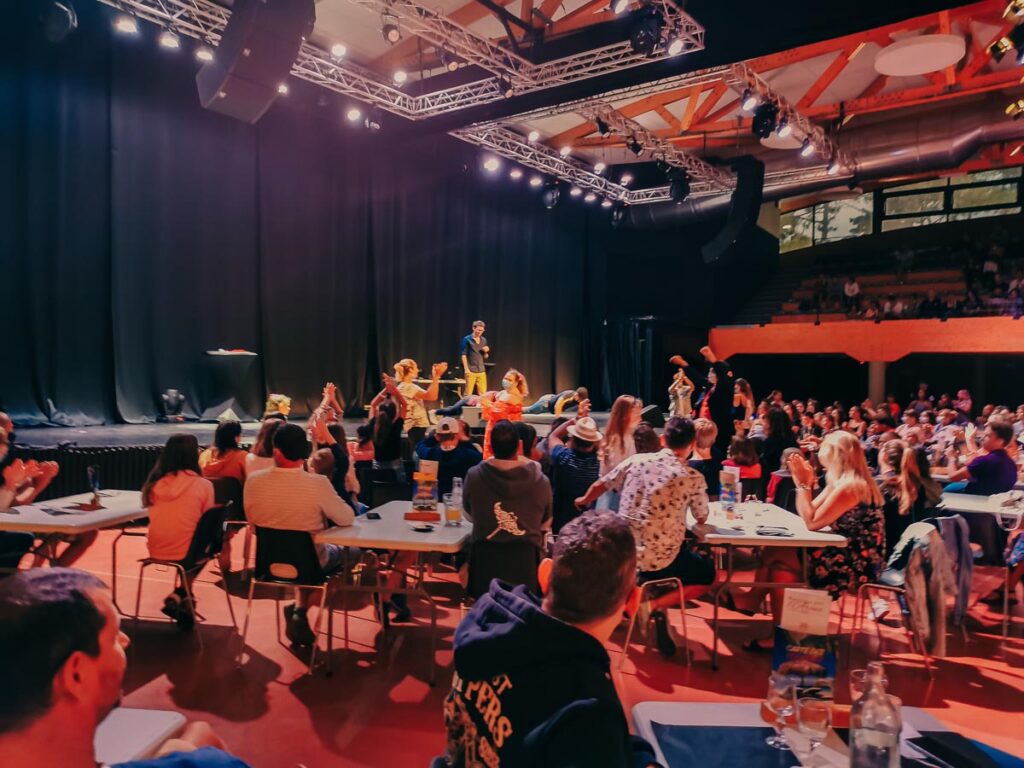
Step 8: Plan your days out off-site
As I explained at the top, our trip to Disney was not well planned, and I’d hate my readers to make a similar mistake. Please, please, please plan ahead. Plan where to park, how much it’s going to cost, look for road closures. These are a few things that make us extremely stressed when we’re heading out and about.
If you’re going to a zoo/animal park, check your timings – when do you get to see them feed the monkeys?
It may seem sad, but I love to have an itinerary.
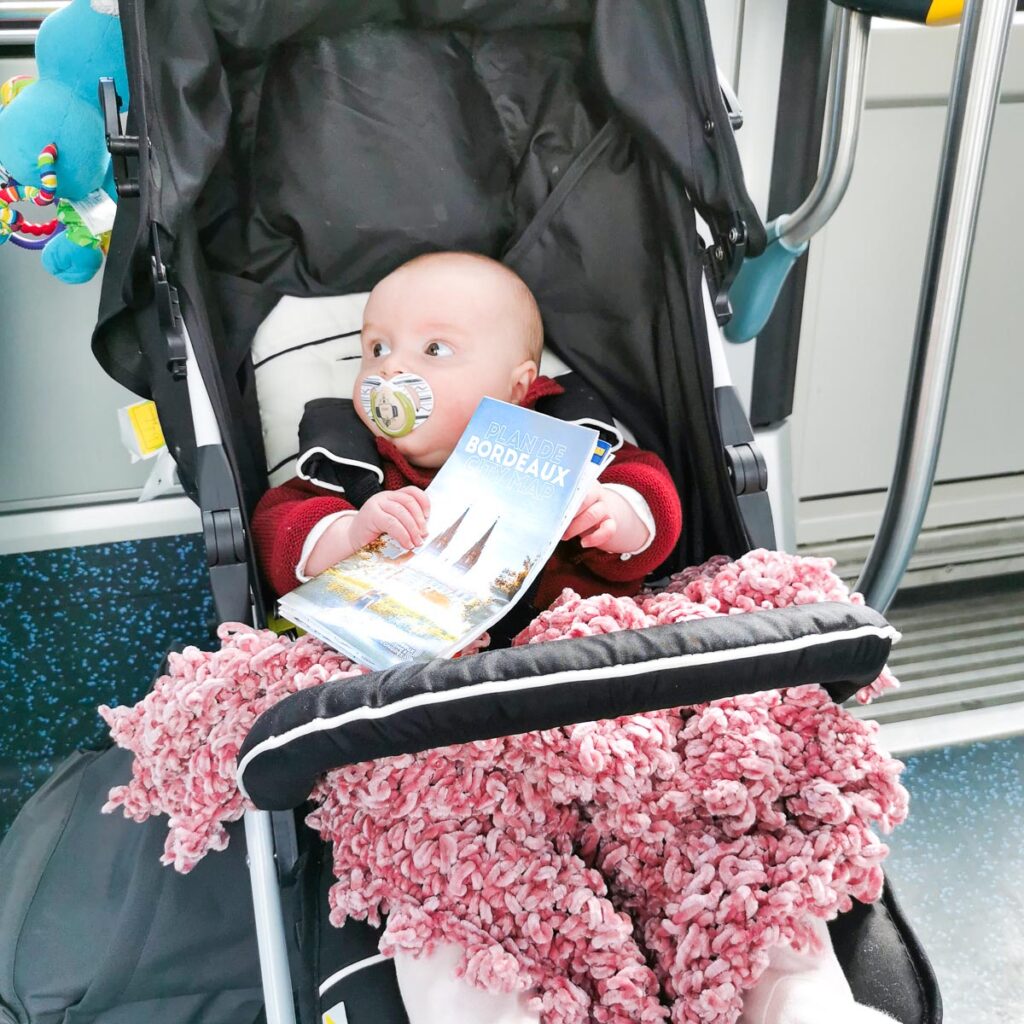
Step 9: Have your plan B’s in place
My last tip, and it’s an important one…
Always have plan B’s in place. Things break, things get lost, and plans don’t always execute the way they should. Make sure you have a plan B.
The most common issues that require the use of the “contingency plan” are equipment failures. What will you do if your electric hook up doesn’t work? What will you do if your blow-up air bed has a puncture? What if a tent pole snaps? Have plans in place for those WWYD if moments.
For us, it would be:
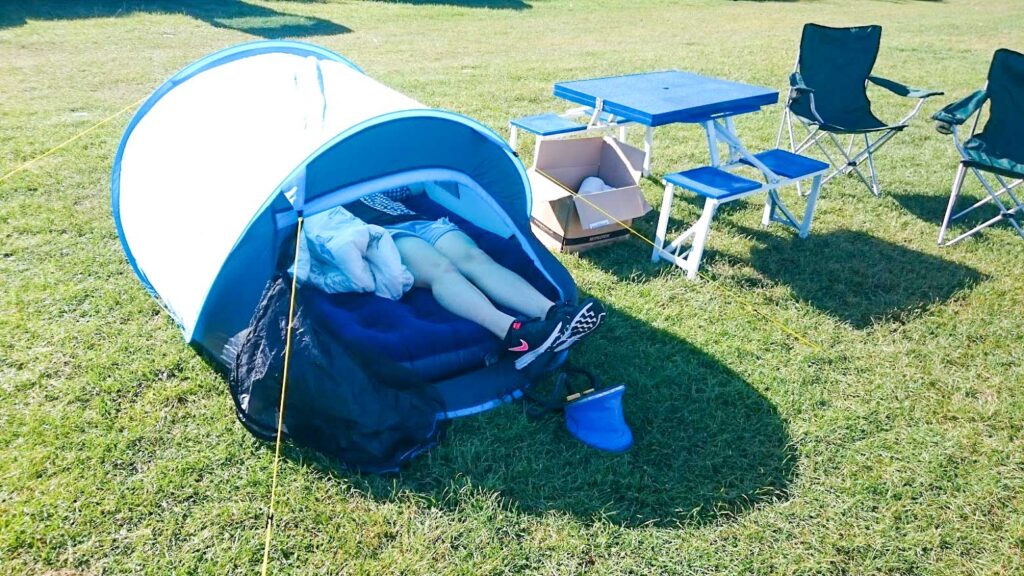
Electric hook up failure = We’d have packed power packs and charge our phones enough to make it through the night and then the next day we’d charge up in a cafe, bar or at the campsite reception. Perhaps if it was a long stay, we’d think about buying another hookup.
Blow up air bed puncture = This is a pretty disastrous one, and I’m not sure I’d be able to sleep on the floor so we’d definitely have to go out and buy something. At Least they’re a fairly cheap item.
Pole snapping = extreme I know but it’s happened to us. A very windy day in Dorset and boom, broken tent. Our solution was to head into the nearest town and buy a cheap pop up tent. Our blow-up mattress was too big for it, and we had to sleep with our feet hanging out the front door. Not ideal. It’s also not the best solution for families. Perhaps you could invest in some spare poles, a small temporary tent or if all else fails make sure you know where the nearest BnB is.
But equipment failure isn’t the only thing to pre-plan for. What if the weather reports were wrong and it’s meant to rain all week? What if you arrive and the campsite is actually closed? What if the nearest shop is closed all day and you will want some food when you arrive?
Step 10: Have A Great Time!
By now you’ve read the above suggestions and have come up with some of your own plans for your own camping trip. Now, you want to give those plans a read through and come up with some plan B’s. The “just in case plans.”
So there you have it, my top tips for planning an awesome camping trip for you and your family.
I hope you enjoyed it. As usual, I’ve written far more than I planned to write – but I guess that’s what happens when I start talking about camping…
What do you think, did we miss anything? Let us know your comments below.
